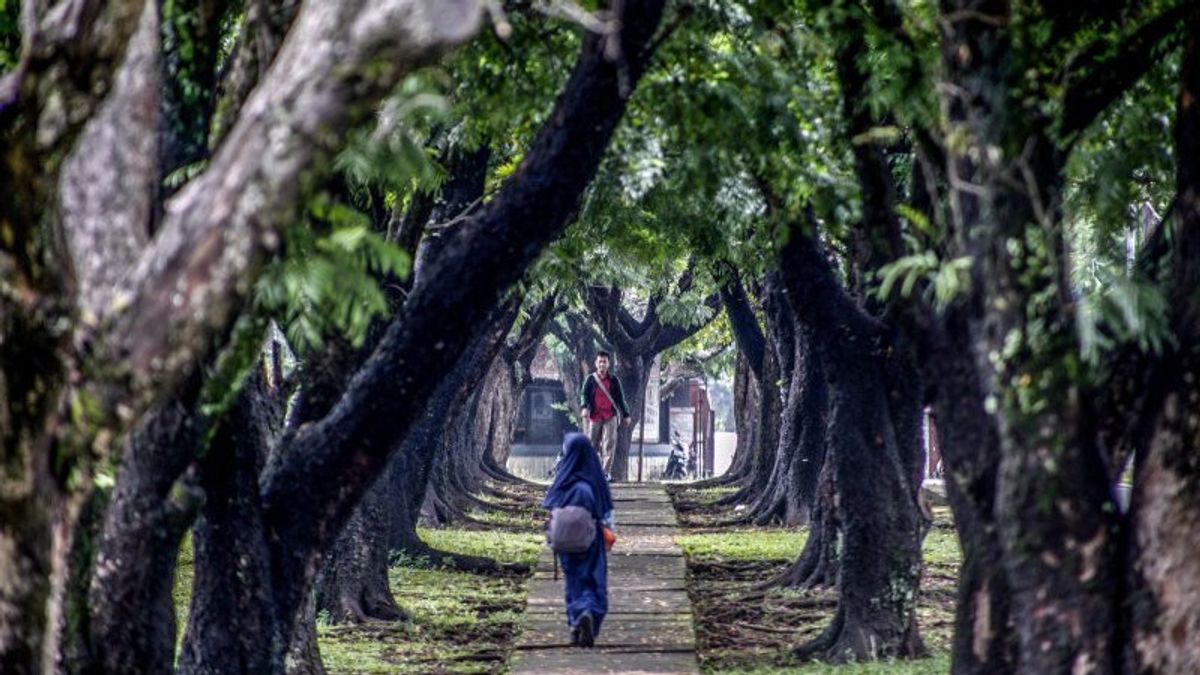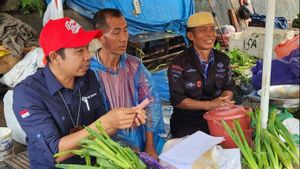JAKARTA - The National Research and Innovation Agency (BRIN) built a greenhouse in the Cibinong Botanical Gardens, Bogor Regency, West Java, to strengthen the function of the botanical gardens.
"In the Cibinong Botanical Gardens, a four-story greenhouse or green house display is being built with a large facade, which is planned to measure 90 meters in diameter and 25 meters in height," said BRIN Mujahidin, the Implementing Sub-Coordinator of the Plant Collection Maintenance Function of the Cibinong Botanical Gardens, BRIN Mujahidin. January.
The greenhouse in the Cibinong Science Center-Botanical Garden complex, he said, would be a controlled and safe facility for plant phenotypes, agricultural microbes, and seeds.
Mujahidin explained that ex situ plant conservation in the Cibinong Botanical Gardens is carried out according to the division of ecological and geographical areas or ecoregions, unlike in the Bogor Botanical Gardens where plant conservation is carried out based on a taxonomic classification pattern.
Cibinong Botanical Gardens is approximately 34 hectares wide and includes plant conservation areas from Sumatra, Java, Kalimantan, Sulawesi, Maluku, Nusa Tenggara, and Papua.
The Nusa Tenggara conservation area includes a replica of the non-dipterocarpa pamah forest, where visitors can find the typical plant species of East Nusa Tenggara, namely lontar.
In addition, there is a Java-Bali conservation area covering an area of about 10 hectares which has a replica of a non-dipterocarpa pamah forest with distinctive plants such as the kepel tree (Yogyakarta flora mascot), gandaria (West Java flora mascot), buni, pule, trengguli, and sugar palm.
While in Cibinong Botanical Gardens, visitors can get to know and learn about plants while enjoying the view of Lake Dora, an artificial lake with a stretch of aquatic plants with small white flowers that look like snow flakes.
The existence of the Cibinong Botanical Gardens began with the construction of an ecological park, a nature conservation park which is part of the Plant Conservation Center of the Bogor Botanical Gardens.
The construction of the ecological park was initiated in 2002. At the beginning of construction, the ecological park had a collection of more than 10,000 trees.
According to the book The Ecopark Cibinong Science Center and Botanic Garden (2018), the collection of plants in the ecological park includes 6,105 specimens consisting of 86 families, 328 genera, and 733 species.
In the Cibinong Botanical Gardens complex, there are Dora Lakes as well as Dori Lakes and Walini Lakes which accommodate an overflow of water from 23 springs.
Cibinong Botanical Gardens was closed to the public around 2018 to 2020 for structuring and on 20 December 2020 it was reopened to the public.
By the end of 2020, Indonesia had 45 botanical gardens with details of five botanical gardens managed by BRIN, five botanical gardens managed by the provincial government, 32 botanical gardens managed by district/city governments, and three botanical gardens managed by universities.
BRIN manages the Cibinong Botanical Gardens, Bogor Botanical Gardens, Cibodas Botanical Gardens, Purwodadi Botanical Gardens, and Bali Botanical Gardens.
The English, Chinese, Japanese, Arabic, and French versions are automatically generated by the AI. So there may still be inaccuracies in translating, please always see Indonesian as our main language. (system supported by DigitalSiber.id)













